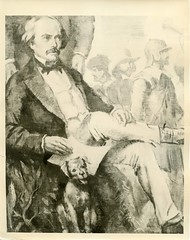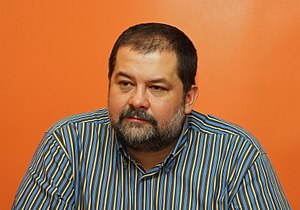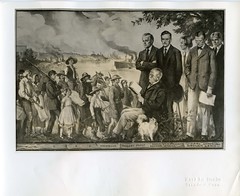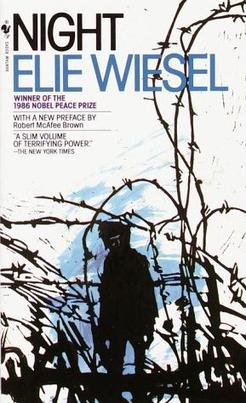| Ephron at right_Seven Second Delay - Live @ UCB Theater 9/23/09 (Photo credit: jvdalton) |
Writer and dramatist Nora Ephron left the world scene yesterday from a NYC hospital where loving family and friends stayed close by, at her passing. What they will miss--borrowing words from her writing--is her visible presence and interaction in their lives. What many of us will miss, from a distance, is just knowing she's here and writing. We have enjoyed her person and words, sharing characters and places, bringing stories to life in hilarious, gentle, and suspenseful ways.
Nora Ephron gave much of herself through autobiographical narratives, dialogues, monologues, and stories. We, admirers of her talent and of her, feel sad that long illness did cut off her life and writing; yet, she gave no hint of question or complaint, at least in public, where she shared much of her life, yet never without humor to help us get through the bad with her. She did not complain, but cryptically, it now seems, revealed some hints of illness in her last book, where she thanked her doctor. It's something one might do after a successful operation, so gave even colleagues no reason to guess that her message meant more.
Watching her movies and news about her life through the years and from a distance, it seemed that she always closely entwined her life and her writing. She never seemed to hide herself from getting on with either. In spite of the heartburn of heartbreak, she moved from Washington, DC, to New York City with two young children (now adults) to start anew. Part of her heartache in the nation's capital included personal items about her ending marriage, much of it splashed in The Washington Post's sometimes too-clever Style section due to her husband's too-public personal actions.
She raised her boys and also married again. She kept working, of course, and her writing stabbed our hearts, hearts that so willingly permitted the joyous worries we shared vicariously with "When Harry Met Sally, "Got Mail," "Sleepless in Seattle," and many more you surely remember, if you're a fan. And of course you are, too!
She raised her boys and also married again. She kept working, of course, and her writing stabbed our hearts, hearts that so willingly permitted the joyous worries we shared vicariously with "When Harry Met Sally, "Got Mail," "Sleepless in Seattle," and many more you surely remember, if you're a fan. And of course you are, too!
Big movie names were made all the more shining than ever through close proximity to any of her works, humorous takes on young love, often, which everyone can be drawn to. I believe there are similarly talented and funny and serious writers, as yet unfound or not quite yet having found the space, time, and exact groove. I hope for that one, at least, to keep working on their own special ways of delighting people on paper and in the movies. When one such writer's road ends, we need another, at least one, to help us laugh in somewhat the same warm, teary, entertaining ways.
Some of us feel a sharp stab when writers think that obscenities and blasphemies can pass for writing or humor, a sharp stab when writers fill spaces with slush rather than a thesaurus search. Nora Ephron may have allowed her characters to speak unthinkingly due to their fictional clueless-ness, in ways we might not do, but not due to writing done without care.
You could tell she waited to find the best words and combinations that drew her. Not perfect writing (whose is?): Ultra-exceptional writing meant to entertain us in our times.
Writing this, I feel timid moments coming on: What if I'm using some phrase she detested, some simple linking of words that made her shudder? Would she, if she read them, be anything but tolerant about that? What do you think?
It's selfish, but I'm longing for fresh delightful, shining moments that say she's still here. Countless thoughts go with and prayers are for the family and friends of the special person. Nora Ephron's words remain with us, and the movies. Don't forget the movies.
Here are some Nora Ephron book titles: Crazy Salad, Heartburn (also movie),
I Feel Bad About My Neck: And Other Thoughts on Being a Woman, Scribble Scribble, I Remember Nothing: And Other Reflections
Copyright (c)2012 Opinari Writers






























